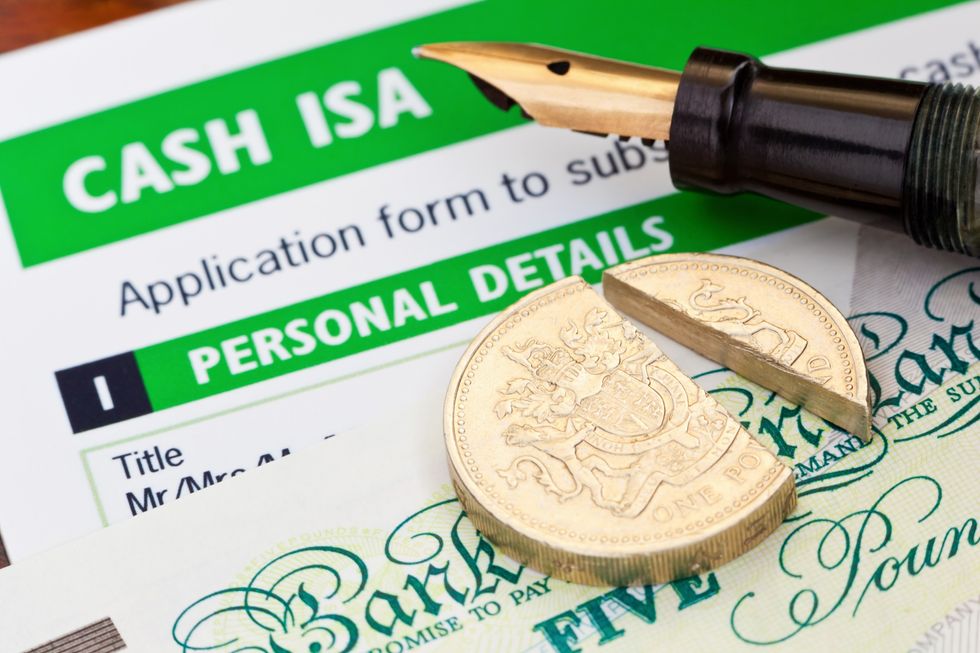Savers are warned they face a £605million ISA stealth tax raid as experts have unveiled hidden figures in the Budget small print.
The Chancellor has extended the ISA allowance until 2030 which effectively reduces the real value of ISAs over time due to inflation.
The freeze is expected to generate substantial revenue for the Treasury over the course of Parliament as more savers will be forced to keep money outside of their tax-free ISAs.
If the ISA allowance had kept pace with inflation, savers would be able to deposit nearly £26,000 in their ISA, figures show. By April 2030, calculations by Interactive Investor suggest the inflation-adjusted figure should have risen to £29,500.
Experts have warned that Labour’s extension of the freeze effectively blocks savers from shielding more of their wealth in ISAs.
Jason Holland at Evelyn Partners said: “Like the frozen income tax thresholds which are drawing millions more people into the higher rates of tax, the freeze on ISAs is effectively a stealth tax.
 Contributing the full £9,000 per year to a Junior ISA from birth could give someone’s child or grandchild a nest egg of more than £255,000 by the time they reach 18GETTY
Contributing the full £9,000 per year to a Junior ISA from birth could give someone’s child or grandchild a nest egg of more than £255,000 by the time they reach 18GETTY“Extending out the freeze to 2030 will certainly have a big impact, especially given the steep reductions in the annual capital gains exemption and dividend allowances set in train by the previous Conservative Government and Labour’s increase in the rates of Capital Gains Tax.”
Myron Jobson, expert at Interactive Investor explained that without adjusting for inflation, the frozen allowance leads to a “de facto” reduction in its value.
He said: “Inflation reduces the purchasing power of money over time, so a fixed ISA allowance allows you to have less in real terms each year.”
The freeze affects all ISA types, with lifetime ISAs remaining at £4,000 and junior ISAs at £9,000 until 2030.
The Treasury is set to earn £15million in 2026-27, £90million in 2027-28, £265million in 2028-29, and a substantial £605million in 2029-30.
The Government are expecting to raise over £600million from ISAs as the move to freeze the threshold will push more people to max out their allowances as it will effectively be worth £14,000 by 2030.
Any extra money will then have to go into general accounts liable to taxation through dividends, capital gains or income tax bands if they’re saving money.
The £600million earned is “substantial” as it highlights the effects of inflation and what freezing limits can do for allowances.
Alice Haine, Personal Finance Analyst at Bestinvest by Evelyn Partners, the online investment platform said: “Along with all the freezes to other personal tax thresholds people will find more of their income gets swallowed up by tax as their income rises.
“However, when people consider the hike in capital gains tax rates and the proposal to bring pensions within the confines of IHT, savers need to be thankful that the ISA allowance remained the same and did not get reduced.”
Although the allowance will continue to drop in real terms and become less valuable, Sarah Coles, personal finance expert at Hargreaves Lansdown, explained that the freeze will provide some certainty over allowances until 2030 which is “very welcome” as it promotes stability to the cornerstone of people’s finances.
However, she warned: “The longer it continues, the more people will bump up against the limits and need to invest outside an ISA. Of course, now that the allowances for dividend tax and capital gains tax have been slashed, and the rate of capital gains tax has been hiked, it means investors being stuck with a bigger tax bill as a result.”
The freeze on ISA allowances will likely push more savers into paying tax on their interest outside of ISAs. This is due to the personal savings allowance, which is linked to income tax bands.
Basic-rate taxpayers can earn £1,000 in savings interest tax-free, but this drops to £500 for higher-rate taxpayers and disappears entirely for additional-rate taxpayers.
LATEST DEVELOPMENTS:
As wages rise and more people are pushed into higher tax brackets due to frozen income tax thresholds, their personal savings allowance may be reduced or eliminated.
Hollands said: “Alongside pensions, ISAs are one of the two core pillars of long-term tax efficient savings in the UK and are more important than ever given the record tax burden the country faces and an increasingly hostile environment for private savers and investors.”
Coles emphasised the importance of ISAs in this context: “This is why it is important to open a cash Isa so your savings are sheltered from any tax that would be incurred on interest.”
A Treasury spokesman defended the policy, saying: “The average subscription is around £6,000 across all ISA types making the £20,000 limit appropriate for the vast majority of savers.”